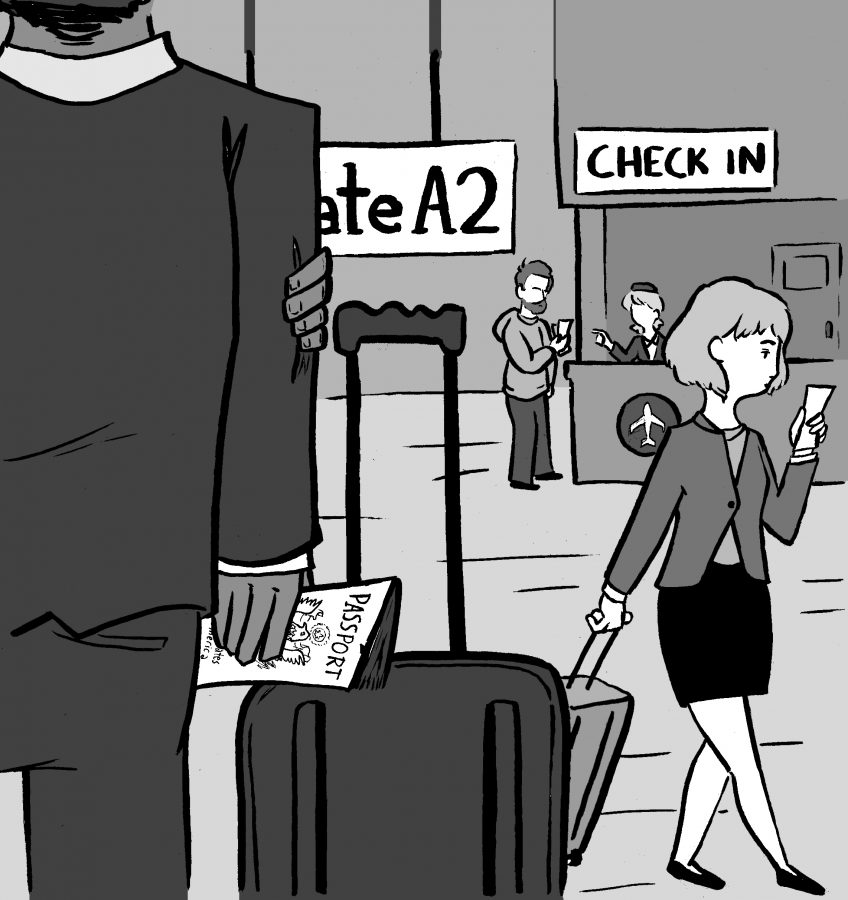“Third time’s the charm” is the motto for President Trump’s travel ban. Travel Ban 3.0™ rolled out in September and, like most software updates, it was only a facelift on the original’s fundamental flaws. The ban demonstrates that we have allowed our fears to be exploited at the cost of our values. As the ban makes its way to the Supreme Court, the conflict posed by President Trump’s executive order becomes clear.
On Jan. 16, 2018, the Departments of Justice and Homeland Security released a report justifying the executive order. The report is based on identifying individuals prosecuted for terrorism-related charges and their associated country of origin.
The government claims that the vast majority of terrorists are born in Muslim-majority countries. The government are picking and choosing convenient parts of the narrative. They willfully disregarded that Colombia, home of recognized terrorist organization FARC, had 20 defendants, less than Somalia (21), tied with Yemen (20), but more than Iran (4), Libya (2), Sudan (3) and Syria (7) combined. The administration’s blind eye to the truth makes the executive order more of a Muslim ban than anything else.
This justification demonstrates that the ban is blatantly xenophobic, openly Islamophobic and unapologetically fear-mongering. It appeals to deep-seated misconceptions at the cost of intelligent, productive and carefully constructed national security policy. The American Dream apparently does not apply if you follow the wrong religion.
The travel ban has repercussions spreading far beyond restricting travel into the United States.
Since the ban was enacted, colleges across the nation have reported reduced enrollment by international students wary about the political climate. UT isn’t exempt from this trend. Using available data, overall international student enrollment at UT dropped 15 percent from 2015 to 2016. Enrollment from Middle Eastern countries, the region most in President Trump’s crosshairs, dropped 29 percent between the two years.
These students matter. High-quality research is conducted by drawing from the best minds in the world, from a variety of countries. Hostile immigration policy makes it difficult for researchers and academics to enter the country. Even though the latest iteration of the ban has outlined exemptions for Irani students, the ban stills poses a significant roadblock for them, and it’s uncertain who will be affected by this in the future.
The ban sets barriers to a fundamental part of the American Dream — the promise that everyone gets a fair shot and if you work hard you can get ahead.
The Trump administration’s tripling down on the travel ban is likely to make students feel even less welcome than before and curtail international enrollment. On a superficial level, this will further constrict the university’s finances and continue to degrade the diverse environment that contributes to cutting edge research, world-class staff and a well-rounded student body.
The reckless abandon with which the Trump administration cherry-picks data and propagates fake news serves to incite fear in the public. It’s divisive, destructive and chips away at the foundations of our society. For all the iterations the travel ban may go through, the public must stand in a united front and secure the promise of America for generations to come.





















